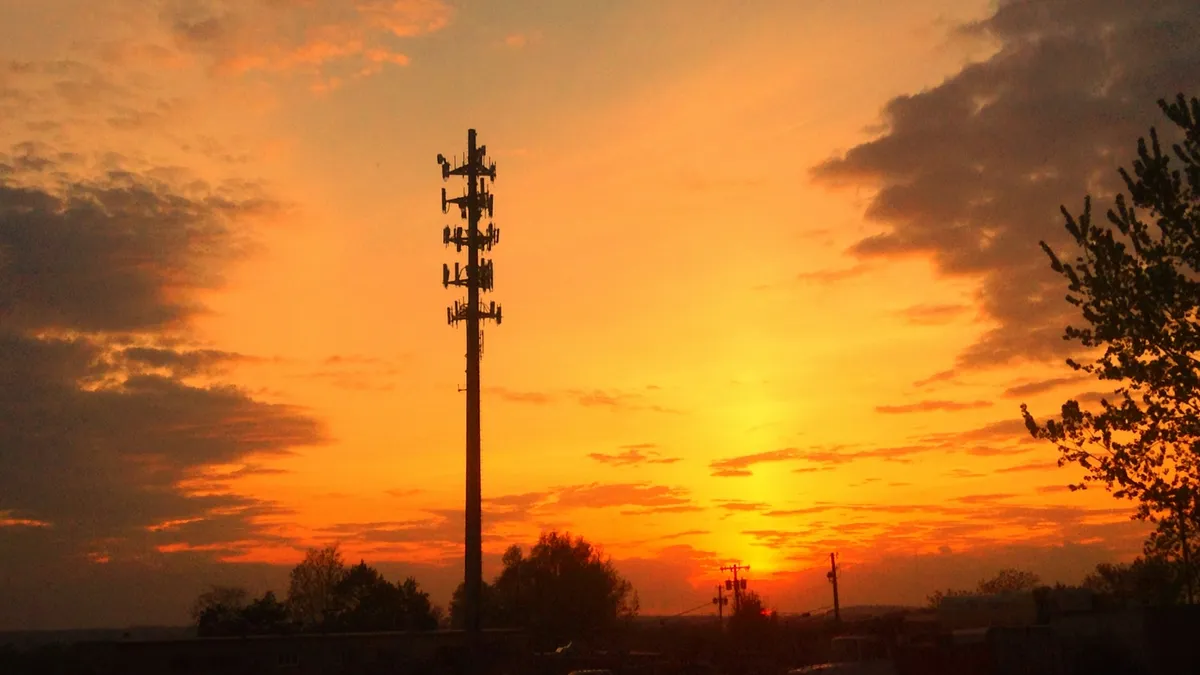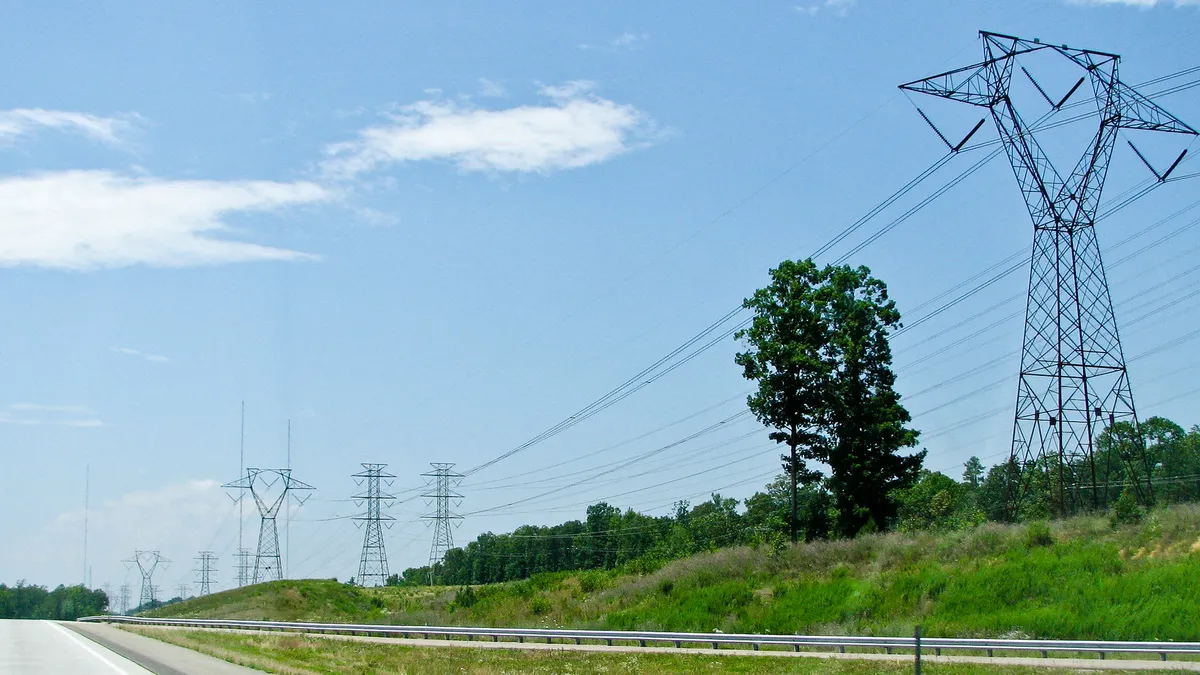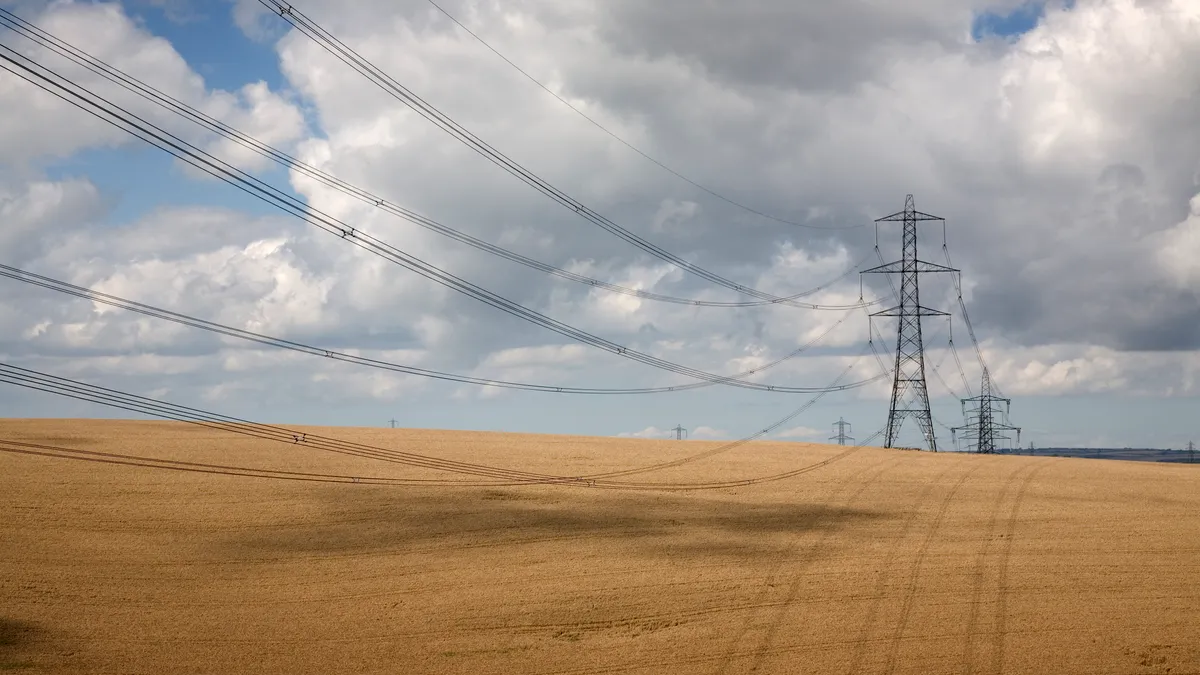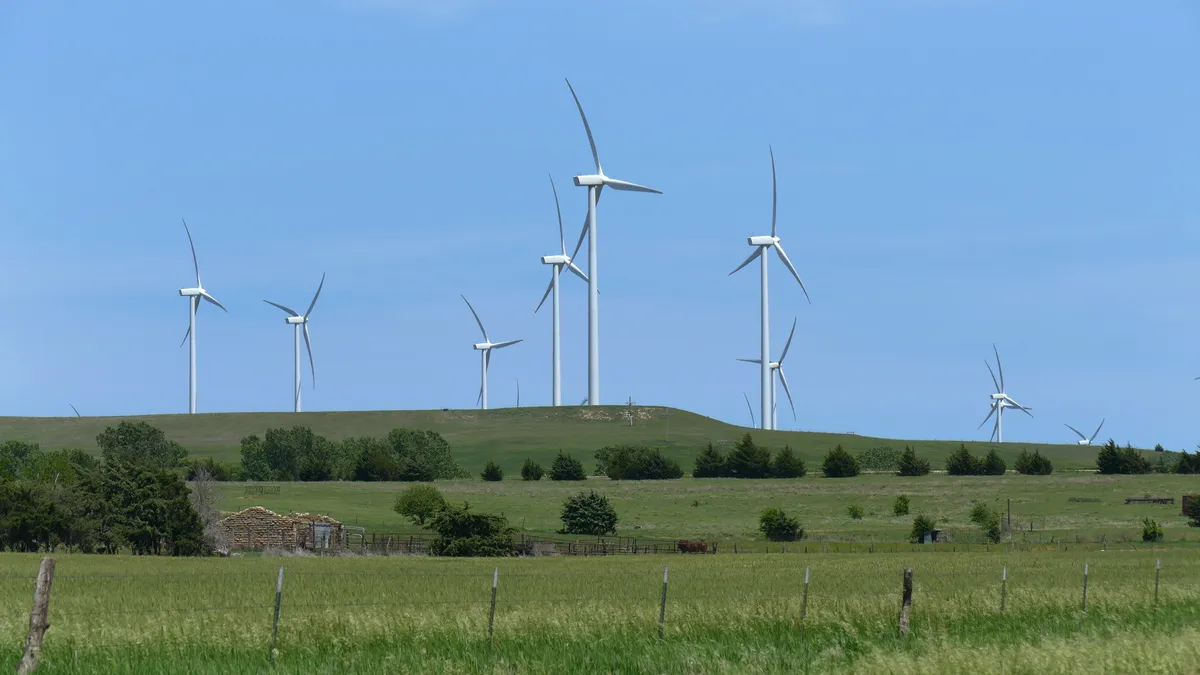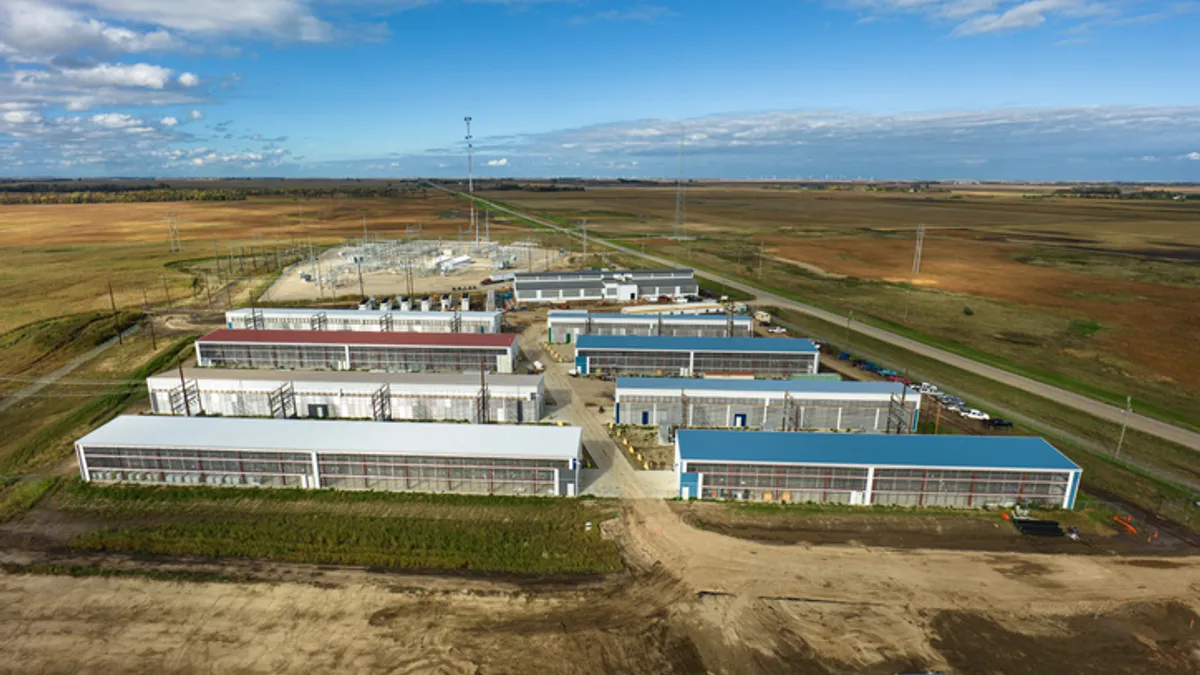A new proposal from the Federal Communications Commission (FCC) is raising concerns from power sector leaders, who say it could compromise the ability of utilities employees to communicate with each other and their customers during power outages and other times of grid stress.
The FCC on Tuesday proposed to move forward with a rulemaking agenda to open up spectrum availability to unlicensed users on its 6 GHz band, which is shared, in part, by 65 utilities across the country.
Groups representing utilities, including the Utility Technology Council (UTC) and Edison Electric Institute, last year opposed the FCC's notice of inquiry, which sought comment on how to expand spectrum accessibility.
"The way policy has developed at the FCC has been there hasn't been a focus on critical infrastructure sectors."

Joy Ditto
CEO, Utility Technology Council
Earlier this month, UTC CEO Joy Ditto testified in front of the U.S. Senate Committee on Energy and Natural Resources. She highlighted the importance of communication not only on the grid but between federal agencies serving different sectors.
"There's not a lot of understanding there among the FCC folks about utility needs and energy needs," Ditto said at the hearing. "And I would say that's true of other critical infrastructure providers as well ... so our idea is just get [the Federal Energy Regulatory Commission] and the FCC ... together, get them learning from each other."
Jurisdiction surrounding communication technologies, central to utility recovery and repair time in the case of blackouts, lies within the FCC, which critics say often designs policy without utility needs in mind.
"The way policy has developed at the FCC has been there hasn't been a focus on critical infrastructure sectors," said Ditto. "There's been more of a focus on commercial provision of telecommunications so this is an area ... to get FERC and the FCC together around, but that interoperability does not exist today."
Communications and the grid
Utilities including Exelon, Duke, ConEdison, AEP and Entergy, along with dozens of others, are licensees under the 6 GHz band.
Utilities operate under their own information and communications technology (ICT) networks, which allow them to communicate when electrical infrastructure is down, particularly important when a natural disaster knocks out power or if the grid is under a cyberattack.
"The utility industry is deploying different levels of technology to make their infrastructure stronger, more robust, more resilient and more responsive to customer demands," Ditto said in her opening statement to the committee.
Although these networks are private, they rely on radio spectrum controlled by the FCC. Radio spectrum is a finite resource and utilities, first responders and other critical infrastructure providers need minimal interference, particularly in times of crisis.
"If utilities were faced with something where they had some sort of attack on their system ... we would probably default to voice communications, which are not digitally based," Ditto told Utility Dive. "So we would need radio spectrum in that scenario and we would need our systems to be highly reliable."
Signal disruption by unlicensed users is one of the fears utilities have voiced in this debate.
"When you have mobile usage it can create interference and it's not even always clear where that interference is coming from so it's hard to mitigate against," said Ditto.
"It is imperative that any unlicensed use must be responsible for avoiding interference with the existing, mission-critical uses of this band."

Joan Marsh
EVP of regulatory affairs, AT&T
6 GHz band
While several utilities, cities and counties filed comments opposing the expansion last year, the proposed rule is supported by several key players in the telecommunications sector, who say opening up the spectrum will allow WiFi and data accessibility to keep up with consumer demand.
"We are encouraged by the progress being made by industry to develop a sharing proposal with the unlicensed community that ultimately could allow coexistence of Wi-Fi-type devices and microwave links," Joan Marsh, AT&T's executive vice president of regulatory affairs, said in a statement.
"It is imperative that any unlicensed use must be responsible for avoiding interference with the existing, mission-critical uses of this band," she added.
Low-cost accessibility for more wireless users "especially those in rural and underserved areas" is largely what's driving this demand and the proposed rule, according to the FCC. As wireless devices continue to proliferate, demand on the spectrum "can seem insatiable," said the proposed ruling.
In considering this need, the commission said its proposal "will allow a valuable spectrum resource to be more intensively used to benefit consumers while allowing the existing licensed uses of the 6 GHz band to continue uninterrupted."
An 'uphill battle'
The FCC's focus "is mostly on the needs of the telecommunications carriers ... and some of the technology providers like Google and others who are in that technology or IT space," said Ditto. However, the agency doesn't seem to "have a great understanding of the needs of electricity. They don't understand how much reliability is crucial to what we do."
"People have been able to accept that they can't always use their phones, but if our lights were going out that often that would be unacceptable to this country," said Ditto. "Because the FCC is in that telecommunications space, they don't have the same mindset about reliability that we have in the electric space."
Due to that difference in philosophy, Ditto says the FCC has historically not chosen to allocate spectrum for individual industries, instead auctioning it off to the highest bidders.
"I get it, because I like my Netflix too, but you can't do any of that without electricity so there has to be a balance somewhere struck with this critical resource."

Joy Ditto
President and CEO, Utility Technology Council
In the 1990s, many utilities and critical infrastructure providers were on the 2 GHz band. The FCC opened that band up to commercial use, encouraging utilities to move to the 6 GHz band, which will now potentially expand to unlicensed access under the proposed rulemaking.
"Now they're saying 'tough luck you have to move again,' but there's not really any place to move," Ditto said. "So they're putting us in a very difficult situation and that means some of our critical communications are not necessarily going to be relied upon and that's not a place we like to be in our sector."
Ditto said she expects the new comment period to be "an uphill battle" for utilities.
"They're opening up the spectrum for what everyone in the economy wants, to download their Netflix," she added. "I get it, because I like my Netflix too, but you can't do any of that without electricity so there has to be a balance somewhere struck with this critical resource."



